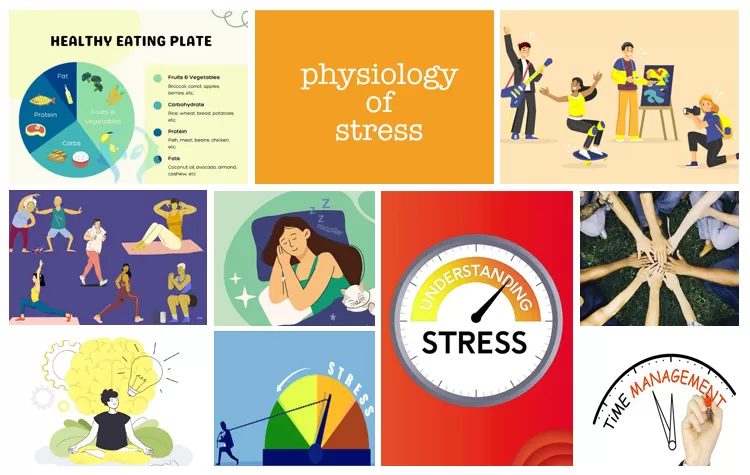
Stress is the response a person feels every time he faces situations not in his well-being; this provokes the "fight or flight" mechanism within one's body. Although it provides excellent assistance in the short term, chronic stress hurts the body and mind. Among the hormones the body releases when it feels stressed include cortisol and adrenaline. But long-term stress causes conditions such as high blood pressure, a weak immune system, anxiety, and depression due to such high levels of hormones.
There are many changes in your body that take place when you are stressed. Your hypothalamus in the brain sends signals to your adrenal glands and makes them release stress hormones so that your heart rate, blood pressure, and supplies of energy increase. While these changes are positive during a moment of imminent threat, they become deleterious if the stress goes on for a longer period. Among the conditions attributed to long-term stress are having physical, fatigued bodies and other conditions like cardiovascular disease, disorders in digestion, and disorders in sleeping. Stress may also be something that strikes the brain, resulting in lesser components like the hippocampus responsible for memory and learning.
Everyone takes stress in their very peculiar way; some common symptoms include:
Physical Symptoms: Fatigue, stiff muscles and headaches; in addition, difficulty is observed in sleeping.
Emotional Symptoms: Anxious, irritable, and overwhelmed with feelings.
Behavioral Symptoms: Changes in appetite, procrastination, and avoidance of social interactions.
Good management of stress will focus on defining what a person's stressors are and finding ways to cope.
Exercise Regularly
Let off pressure through exercise. A chemical released through regular exercises gets your mood going and is also a natural pain reliever; it reduces stress hormones. Healthy exercises include swimming, yoga, and walking.
Practice mindfulness and meditation
Other techniques include progressive muscle relaxation, deep breathing, and guided visualization that help regulate the mind as well as the body. Other techniques involve mindfulness and meditation where you learn to concentrate attention on what is happening in the present thus reducing drifting on what created the stress.
Maintain Healthy Diet
A well-balanced diet contributes much to the reduction of stress impacts and general well-being. Foods that contain omega-3 are fish, nuts, and seeds. One also reduces stress through reducing or avoiding most of the caffeine or sugar intake which helps people avoid mood swings and anxiety.
Sleep Enough
Getting good sleep may be a part of how you cope with your stress. Keep trying to sleep seven to nine hours every night: Have regular sleep and wake times-even on weekends: Have a sleep-friendly environment: Activities are limited in the bedroom to those without computer screen and other electronic devices before bedtime.
Build a Support System
However, this support can be balanced against the effect of stress. Venting to loved ones, friends, or even a professional mental health provider not only makes sense but helps in releasing emotional tension.
Time Management
It's better to free yourself from all those tensions by proper time management; that is removing the deadline for all the work done, and that way, stress cannot enter through that door.
It is much simpler as long as one learns to set priorities on work, chop them into even smaller steps to be taken and also delegate parts done when it's possible in order to make things easier at the work environment.
Hobbies and Relaxation
Taking a few minutes to engage in activities that bring you joy can provide you with mental space away from all those stressors. Whether it is reading, painting, or gardening; let's face it, one of those hobbies can be a great addition to your arsenal of techniques to manage stress for you.
Conclusion
It can be reaped only if the processes of stress science and its effects on the human body are managed and reduced. The good tools that might prove useful in this regard could be healthy habits, mindfulness, or support at the right time in a person's life.